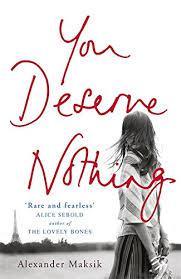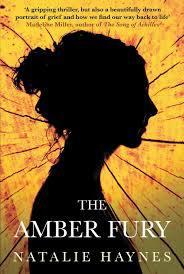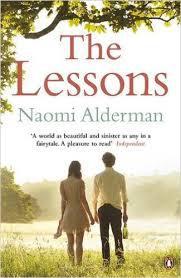Why is it that the student-teacher relationship is such a potent and hypnotic one? Inevitably, this is something I’ve thought a lot about over the years, not least because of a strange sense I always had that teaching is easy. I loved the relationships I had with my students because teaching was the one place where I felt I knew exactly what was expected of me, and exactly what my students needed. Most relationships have an opaque quality, a nagging suspicion that we’re not sure of doing or saying the right thing, the necessary thing. But my students, I felt sure (and do correct me if I’ve been labouring under a delusion), just wanted to be seen, truthfully – though they preferred that truth to be palatable – and then guided kindly in the right direction. Because those things together, truth and guidance, are transformational. To be told by someone whose judgement you trust that you are either okay, or on the path to being okay, breeds confidence, which is a properly magical quality. I’ve seen clever, able students completely crippled by a lack of confidence and students with ostensibly fewer abilities soar to amazing heights on its warm thermals. Confidence is mostly very hard won, but a few beings can confer it upon a person, and teachers are one of them.
So it’s unsurprising that the relationship between a teacher and a student can become unbalanced with all sorts of emotional messiness; truth and guidance can topple over into love and obsession, they can welter in hatred and resentment, they can breed cynicism or despair. No wonder then that it can make for some pretty fascinating pieces of fiction.

The new school year begins and Mr Silver embarks on his voyage of discovery with a new group, that includes Gilead, a young man with troubled parents who is looking for a hero, Ariel, Marie’s best frenemy, Colin, Marie’s angry ex-boyfriend and Abdul, a Muslim boy with powerful parents. This gets awkward when the topic under discussion is Existentialism, a philosophical movement that denies the existence of God, and which the class debate with the gloves off. Before long, that dazzling ability of Mr Silver to open up students’ minds is finding disfavour with the school authorities, who believe it is incompatible with respect for less open-minded religions. And what they don’t know yet is that Marie has come back into Will Silver’s life.
The narrative swaps hands between Will, Marie and Gilead, with different perspectives often going back and forth over the same events, showing the difference in the way they have been experienced. The hothouse atmosphere of further education: adolescents exploring their sexuality and their intellects, crushed by disappointments, longing for stable role models, breaking away from family difficulties, is brilliantly portrayed. Paris makes a glorious, vibrant backdrop, and most enigmatic and mesmerising of all is Will Silver himself, a man aware of the power of his teaching, and the emptiness of his soul. This is a narrative that starts quiet but builds inexorably. If I had a criticism, it would be that the ending becomes obvious from three-quarters of the way through and happens without surprise. But it’s a quibble, really, about a very, very good book.

Alex is another enigmatic teacher, but her secrets will form the basis of the story. The reader learns what they are in the same time frame as the students – one of whom, a deaf girl, Mel, has become exceedingly curious about their careworn, unhappy mentor. It’s Alex’s own vulnerability that has attracted Mel’s attention to her, and with very little else to occupy her mind, Mel is intent on discovering what has happened in Alex’s past. As she does so, the plots of the tragedies they are reading, and the meaning the class draws from them, become entangled with real events as they unfold.
This is a good book, well-written, but slightly marred for me by implausibilities. No way would any teaching establishment for difficult kids take on an inexperienced teacher like Alex, or stand for the haphazard way she runs her classes. Nor do troubled teens come out with impressive insights into Greek literature that they have no real interest in. I can see why Natalie Haynes makes these choices – her plot depends on them – and probably if you didn’t teach literature to students they wouldn’t mar your enjoyment of the book (and a story full of the accurate grunts and sighs of bored adolescents would be no fun to read). So. More generally, I was a bit fed up with all the slow reveals going on in the early sections – what happened in Alex’s past, what happens in her time at the unit – common thinking is that readers love this sort of suspense, and that it pulls them through the story, but I much preferred watching a situation build in the Maksik novel. Saying all of this makes it sound like I didn’t like The Amber Fury or that it isn’t a good book. And that would be wrong. I thought the ending of this novel was the best part of it, and that Haynes nailed it perfectly. The referral unit is vividly portrayed and the expositions on Greek literature are interesting. There’s a lot to enjoy.

I confess I skim-read the second half, in which things go from bad to worse. This is another exquisitely written book, but somehow I wasn’t in the mood to read about screwed, self-destructive people screwing their lives up and destroying themselves. There’s a glimmer of hope maybe at the end, but I had to go through a lot of yelling ‘No! Don’t do it!’ at the book, while the characters went ahead and did it, before getting there. For me this was not really a bleak midwinter option, but you shouldn’t let that put you off if you like a bit of darkness and melancholy. The language and characterisation are both sharp and impressive.
So what do we learn from all of these? Well, that fictional teachers ought to be like doctors and have the same option of being struck off; that fictional schools are full of crazy students; that a little learning, particularly of literature, can be a dangerous thing. Does that sound more exciting than your school days? It was all a lot more dramatic than my teaching ones – thankfully.
